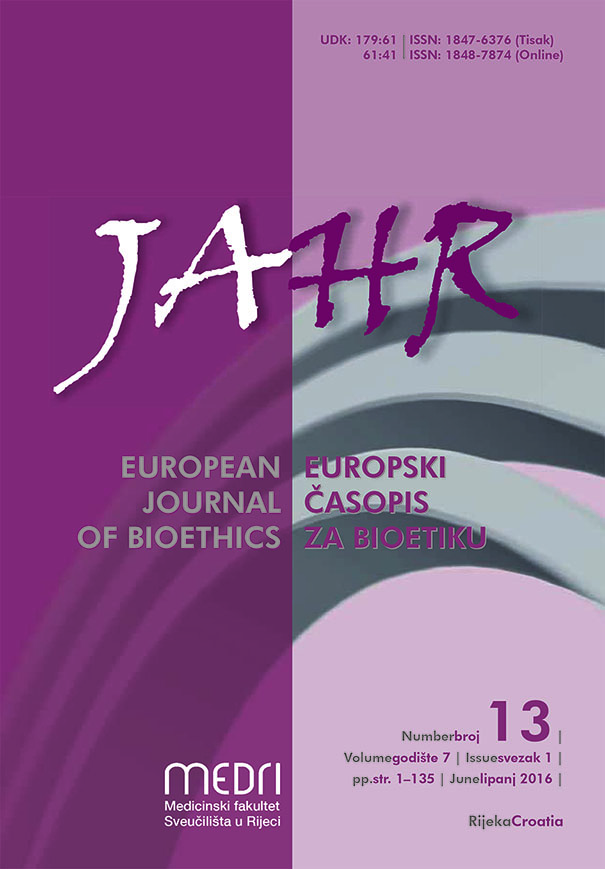Moždana smrt i transplantacija organa iz japanske perspektive: Pogled kroz vrijeme
Keywords:
Japan, bioetika, moždana smrt, transplantacija organa, svijest, medicina, moralAbstract
None of the topics in the history of mankind occupies a man’s mind as much as the phenomenon of death does. Accordingly, religious and cultural traditions of any nation can play a significant role in shaping a bioethical discourse that deals with the mentioned phenomenon, of which, for the purpose of this paper, the Japanese people have been chosen. Namely, the Japanese have an entirely different perspective when compared to the one which most people are accustomed to, therefore is their medical ethics especially intriguing, which was also the reason for writing this essay, with an emphasis on the Japanese bioethical thought about organ donation and brain death. The purpose of this paper is manifold: it intends to (1) provide an introduction to the postulates of medical ethics of Japan, (2) clarify the concept of death, (3) explain the concept of consciousness and its variations in the medical field, (4) bring the Japanese thought closer to the Western medicine and philosophy, the thought which claims that giving and receiving organs – particularly those of a dead person – is inhumane and immoral, and, finally, (5) provide a solution for the mentioned bioethical dilemma.
Downloads
Published
Issue
Section
License
Authors who publish with this journal agree to the following terms:
- Authors retain copyright and grant the journal right of first publication with the work simultaneously licensed under a Creative Commons Attribution License that allows others to share the work with an acknowledgement of the work's authorship and initial publication in this journal.
- Authors are able to enter into separate, additional contractual arrangements for the non-exclusive distribution of the journal's published version of the work (e.g., post it to an institutional repository or publish it in a book), with an acknowledgement of its initial publication in this journal.
- Authors are permitted and encouraged to post their work online (e.g., in institutional repositories or on their website) prior to and during the submission process, as it can lead to productive exchanges, as well as earlier and greater citation of published work (See The Effect of Open Access).



